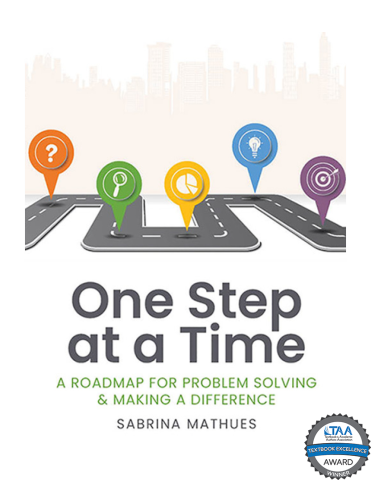Questions? Request Information
Empower and Inspire Young Minds
Start your path toward becoming a proponent of education and child development with your Bachelor of Arts in Early Childhood Education (ECE) from the University of Arizona Global Campus. In this ECE online degree program, you will discover all the wonders of early childhood education as you learn ways to support children during a pivotal time of academic and personal growth.
Upon completion of the BA in Early Childhood Education degree program, you will be able to:
- Summarize principles of child development, including cognitive, physical, linguistic, social-emotional, and affective domains that define healthy, respectful, supportive, and developmentally stimulating environments for children
- Design developmentally appropriate teaching strategies to implement professional learning standards and curriculum, focused on meeting the academic and developmental needs of children
- Justify the goals, benefits, and responsible use of observation, documentation, and assessment strategies in working with families, colleagues, and communities to determine appropriate learning methods for children
- Analyze effective strategies that focus on collaboration and communication with families, communities, and colleagues to foster positive and supportive relationships that impact the learning and development of children
- Analyze the principles of equity, pedagogy, and inclusivity to meet the needs of typically and atypically developing children as well as culturally and linguistically diverse children and their families
- Promote ethical standards through reflective practice and collaboration, critical application of current research and theories, and identification as an early childhood professional and leader while continually advocating on behalf of children and families
UAGC Award-Winning Curriculum
Military Students $250.00/credit
Undergraduate Courses $460.00/credit
Technology Fee** $115.00/course
Books and Other Class Materials** $125.00/average per course
Graduation Fee $150.00
Total Program Cost See UAGC Catalog¹
¹Keep in mind that this figure doesn’t factor in any potential discounts, partner benefits, or impact of accepted transfer credits, if eligible.

UAGC is proud to provide reduced tuition rates for our academic and corporate partners, helping community college transfer students and corporate employees earn their degrees with less financial burden.


Course Overview
To earn your Bachelor of Arts in Early Childhood Education at the University of Arizona Global Campus, you must complete 120 credits. You will need to complete 30 upper-division credits, of which 18 credits must be from the major program. A total of 30 credits must be completed at UAGC to meet the residency requirement. You may be able to transfer approved credits from community colleges, other previous college coursework, or other life experiences such as military service or job training toward your degree.
The Bachelor of Arts in Early Childhood Education prepares students for a career in early childhood education. Upon completion of coursework in designing learning experiences using developmentally appropriate practices, curriculum, instruction, and assessment, students will be well acquainted with educating diverse children from birth to age 8, be highly trained in various theories of education, and exhibit advanced marketable skills relevant to early childhood education.
The mission of the Bachelor of Arts in Early Childhood Education program is to develop professionals who are proficient in their knowledge, skills, and competencies necessary to educate and advocate for children, inclusively serve diverse communities, and effectively develop high-quality early childhood education environments aligned to professional standards.
Certification and Licensure Terms and Conditions
An online degree from the University of Arizona Global Campus does not lead to immediate teacher licensure in any state. If you want to become a classroom teacher, contact your state's education authorities prior to enrolling at the University of Arizona Global Campus to determine what state-specific requirements you must complete before obtaining your teacher's license. The University of Arizona Global Campus graduates will be subject to additional requirements on a state-by-state basis that will include one or more of the following: student teaching or practicum experience, additional coursework, additional testing, or, if the state requires a specific type of degree to seek alternative certification, earning an additional degree. None of the University of Arizona Global Campus online education programs are accredited by the Council for the Accreditation of Educator Preparation (CAEP), which is a requirement for certification in some states. Other factors, such as a student’s criminal history, may prevent an applicant from obtaining licensure or employment in this field of study. All prospective students are advised to contact the licensing body of the state where they are licensed or intend to obtain licensure to verify that these courses qualify for teacher certification, endorsement, and/or salary benefits in that state prior to enrolling. Prospective students are also advised to regularly review the state’s policies and procedures relating to licensure as those policies are subject to change.
Alabama Students: State authorization to provide a program related to the preparation of teachers or other P-12 school/system personnel does not indicate eligibility for an Alabama professional educator or professional leadership certificate. Applicants who complete an educator preparation program at a non-Alabama institution must apply for an Alabama professional educator or professional leadership certificate through the Alabama Certificate Reciprocity Approach. Current requirements may be found at https://www.alabamaachieves.org/teacher-center/.
Kentucky Students: Please be advised that although the University of Arizona Global Campus offers a variety of programs aimed at preparing potential educators in diverse settings, our K-12 educator preparation programs are NOT accredited in Kentucky by the Education Professional Standards Board and are NOT recognized for initial, additional, or renewal of certification or salary enhancement (rank change) for K-12 educators in Kentucky. For more information, please visit the Education Professional Standards Board’s website at http://www.epsb.ky.gov/mod/page/view.php?id=220.
Certain degree programs may not be available in all states.
The Online Teaching Support Certification recognizes programs that require all online faculty to undergo training in best practices for online course delivery, provide faculty with ongoing pedagogical support, encourage faculty professional development to increase their knowledge and skill in online teaching, emphasize instructor availability and feedback to learners, and collect and use feedback from learners to improve online teaching. Learn More

The Online Learner Support Certification recognizes programs that provide all the critical student and academic services needed for learner success and use learner feedback to continuously improve those services.

What Can I Do With a Degree in Early Childhood Education?
As an undergraduate early childhood education major, some of the career paths you may choose to pursue include:
- Teacher Aide
- Educational Assistant
- Childcare Worker
- Tutor
A degree in early childhood education is the foundation for a variety of potential job opportunities in the field of education. Successful completion of the Bachelor of Arts in Early Childhood Education by itself does not lead to certification or licensure in any state.
Gain insights into the early childhood education job market by reviewing the Bureau of Labor Statistics market outlook report.
I now know the power of knowledge, the importance of sharing it, and the even greater obligation to never stop striving for more of it.
BA in Early Childhood Education FAQs
-
Majoring in early childhood education can open the door to a fulfilling career and provide you with a foundation for further graduate study. A few additional benefits to majoring in ECE include:
- Making a positive impact on the lives of young children
- Preparing for a variety of job opportunities in early childhood education settings
- Gaining the skills and knowledge needed to support children's social, emotional, and cognitive development
-
Yes, a bachelor's degree in early childhood education is typically the minimum education requirement for some employers. However, some employers may prefer candidates who have a master's degree or additional certification.
-
BA in Early Childhood Education courses cover several relevant topics, including children’s cognitive and physical development, language acquisition, and the impact of parents and communities on childhood education.
-
There are many extracurricular activities that can enhance your early childhood education degree. Some examples include:
- Volunteering or working in childcare and other education settings
- Joining a student organization related to education
- Attending workshops and conferences
- Completing internships in early childhood education settings
- Conducting research on child psychology, learning, and development
-
Yes, you can pursue advanced degrees in education, and our BA in Early Childhood Education prepares you to enter an advanced degree program. UAGC offers a Master of Arts in Early Childhood Education Leadership, a Master of Arts in Education, and a Ph.D. in Education program.
-
Earning a BA in Early Childhood Education online can offer several benefits, but it's important to carefully consider your goals and learning style to determine if this mode of education is the right fit for you. Here are some of the advantages of pursuing an online bachelor's degree in ECE at UAGC:
- Flexible Online Classroom: Discover an online classroom experience that gives you the flexibility to create your own schedule. You will have access to 24/7 online support and service along with all the tools and technology needed for you to successfully complete your program coursework.
- Educational Format: Take courses that are five weeks long, one class at a time. Pursuing your bachelor’s degree online can give you options that a traditional classroom format doesn’t allow. Instead of taking multiple classes all at once, explore the option of taking one class at a time that works within your current life schedule.
- Qualified Faculty: You will be taught by faculty who have real-world experience and top academic credentials, allowing you to learn the latest concepts and theories in the field of education.
See What Else UAGC Has to Offer
Questions? Request More Information
**
The Technology Fee covers access to University systems such as the online classroom, the Student Portal, and other academic resources. The Technology Fee and the Course Digital Materials (CDM) Fee are fully refundable if a student does not attend beyond Day 3 of a course (Week 3 if covered under the University of Arizona Global Campus Promise Refund Schedule). After this time, the fee becomes non-refundable. Students are charged the Technology Fee for repeated coursework. Students are not charged the CDM fee for repeated coursework if previously charged.
***
The transferability of credits is subject to the University of Arizona Global Campus transfer credit policies and requires the submission of official transcripts. The official transcripts will be evaluated by the Registrar’s Office to determine the credits that will officially apply toward a UAGC degree program. Credits must be earned at the same degree level in order to be applied. Additional restrictions may apply. See the UAGC Academic Catalog for full undergraduate and graduate transfer policies.
^
The Council for the Accreditation of Educator Preparation (CAEP) is the resulting entity from the merger of the Teacher Education Accreditation Council (TEAC) and National Council for Accreditation of Teacher Education (NCATE).





